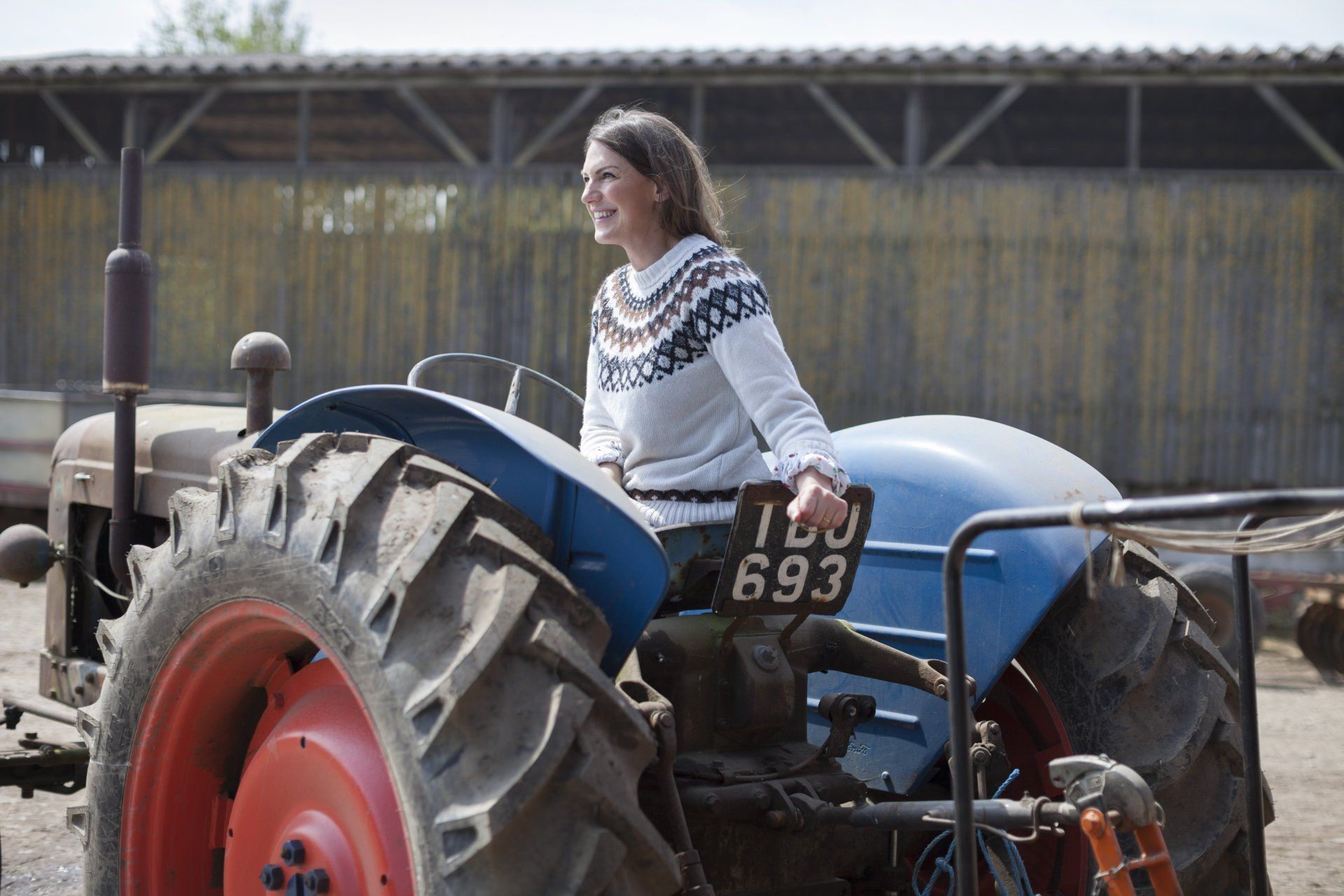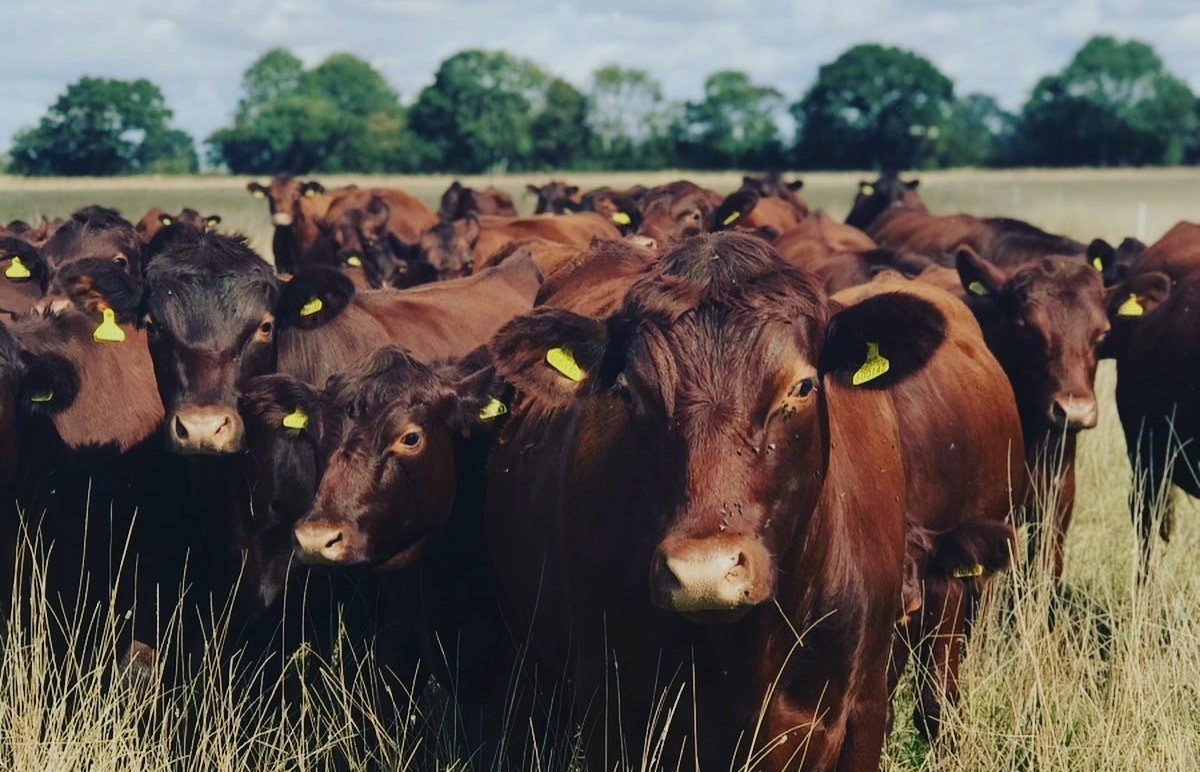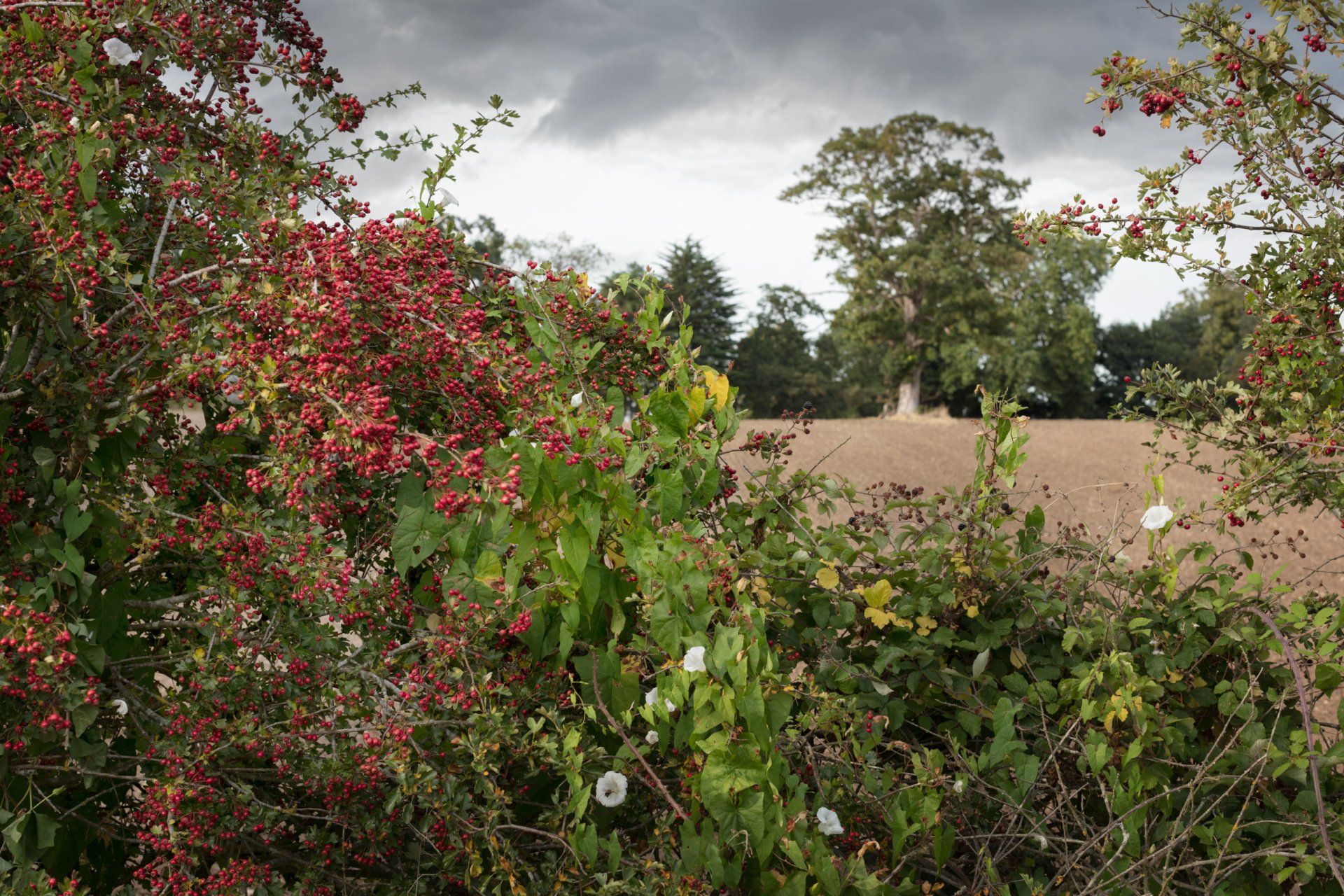Regenerative Agriculture - Rooted
Sarah Langford enjoyed an illustrious career as a barrister in London before inadvertently swapping her gown and wig for a jumper and wellies.
Moving back to help run her husband's small Suffolk farm with a young family in tow, Sarah began writing about her experiences, first in law, and then in farming.
Rooted: Stories of Life, Land, and a Farming Revolution shines a light on the world of farming at a critical point in the future of the countryside, as Sarah explains here.

I had not expected to find my way back to farming. It happened by accident, when my husband, Ben, lost his job in 2017 and we found ourselves unemployed with a baby, a toddler and a newly bought but uninhabitable wreck of a house. We decided to move temporarily out of London to Suffolk, where Ben grew up, while it was renovated. Ben could look for other work and I could finish my first book, In Your Defence: Stories of Life and Law, an account of my career as a criminal and family barrister. Whilst in Suffolk, we would take on the running of Ben’s small pasture and arable family farm. Our time in the countryside was supposed to be a respite. In the end, it was the most real thing we have ever done.
I grew up in a farming family that had enjoyed the excesses of subsidised agriculture. But when I found myself back on the land, everything had changed. Brexit had brought about the end of agriculture’s Basic Payment Scheme, which meant half of all farms would soon find themselves making no profit without it. Yields had plateaued and weeds were becoming resistant to the chemicals designed to kill them. The farming heroes who had fed a nation made hungry by war had now become villains accused of wrecking the countryside, polluting rivers and streams, decimating wildlife populations and responsible for 10% of all climate emissions. I realised we had become farmers at a time of huge change and uncertainty, when we had to decide not just what we should do on our own small farm but what the future of farming meant.

In the end, one of our three arable fields made our decision for us. We had sprayed it with glyphosate three times but the blackgrass threatening our wheat crop just kept growing. We had to pay five workers to pull the plant out by hand. When I looked at the accounts, I realised that even though we were getting good yields, much of the profit was being eaten up by the cost of the inputs used to grow it. Without public subsidies we would be lucky to break even.
We had to find another way. We decided to go organic, which meant all our crops had to be grown without any pesticides or synthetic fertiliser. But it was not just the land that required conversion: our contractor had been farming inorganically for over forty years. He and we set out on a path that became as psychological as it was practical: change had to happen not just in our soils, but in our heads and hearts.
I started to read, hear about, and talk to farmers practising pre-chemical farming methods, combining them with technology and soil science to alter how they farmed and what they grew. Some farmers had never stopped this way of farming, bearing the ridicule of their neighbours as they stored up secrets which people increasingly wanted to know. I realised that in fields all over the country, a quiet revolution was happening.

The journey I went on became the inspiration for my new book, Rooted: Stories of Life, Land and a Farming Revolution, to be published by Penguin on 7th July, with a pre-release launch at the farming festival, Groundswell. Rooted weaves the story of our Suffolk farm around the stories of some of the farmers I met – from arable to dairy, traditional to experimental – whilst shining a light on the human story of farming. It argues that regenerative farming might offer those in the city more than just a way to grow healthy food for them to eat. Its philosophy offers purpose, perspective and a physical and mental connection to the world and community around us, teaching us to look for the root of a problem rather than just at its solution. I realised it was not just the land which might benefit from seeing the world this way.
This afternoon I took a friend around our fields. We dug up clods of soil and examined the roots of wheat we are experimenting with sowing into different soils - one cultivated and the other pre-sown with clovers and herbs. We saw hares, a pair of English partridge, scores of skylarks, bumble bees, butterflies and other creatures which were absent from these fields not long ago. On the verge of the uncut hedge next to us grew primroses, speedwell, daisies, dandelions and other wildflowers that the owners of the cottage at the bottom of the path said used to grow there when they first moved in forty years ago. They had become so used to not seeing them they had forgotten they ever did so until now.
Change can happen fast, and not just in the natural world. Our contractor says he is learning so much that, in his fifth decade of farming, he feels like a student again. In my case, I have actually become one: I am studying a post-graduate diploma in agriculture at the Royal Agricultural University in Cirencester where, forty years ago, my father went to learn how to take out all the hedgerows we are now replanting. What I have learned has not just taught me to see the natural world differently. It has shown me that when it comes to climate change, nature recovery and feeding a growing world, this new-old way of regenerative farming can instead be part of the solution.

WildEast Blog

Powered by LocaliQ
Follow Us
SIGN UP FOR NEWS & UPDATES
Newsletter Sign Up
Thank you for signing up to our newsletter.
Please try again later.
Privacy / Terms & Conditions / Sitemap
